Looking after your mental health during COVID-19
Looking after your mental health during COVID-19
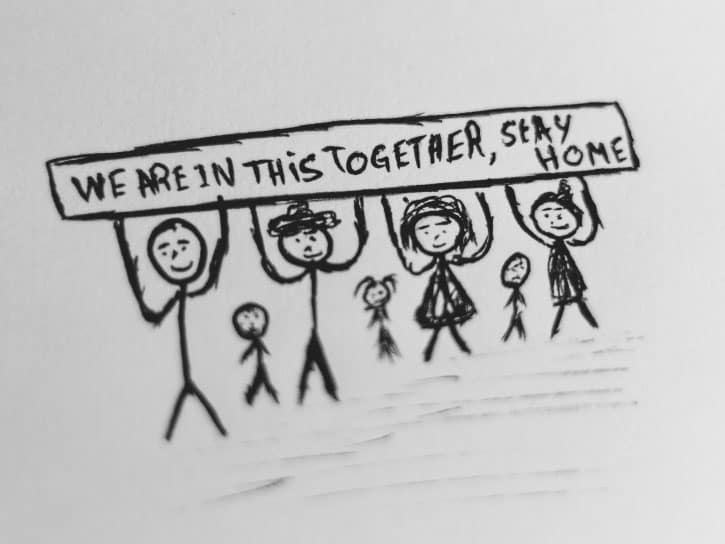
There’s no doubt that we’re living through some extremely challenging and unusual times at the moment, so it is not surprising that some of us are finding it hard to cope or comprehend the enormity of our situation. Whether it be the fear of contracting COVID-19 itself, or the uncertainty around the economic fallout and prolonged lockdown conditions, we are all living in a period of heightened stress, where a lot of things are out of our control.
Being aware of your mental health needs is vital during this time. We urge anyone who is experiencing mental health concerns to reach out and ask for help. Our details and a list of useful resources are listed at the end of this post.
If you haven’t previously suffered from any mental health issues, you might not be sure of the symptoms to look out for. Symptoms vary from person to person (and talking to a professional about your own personal situation is vital). We’ve summarised a list from the Australian Government’s Healthdirect website (you can read details and find links to further information here).
Symptoms to look out for in yourself and others:
- Feeling anxious and worried
- Feeling depressed or unhappy
- Emotional outbursts and changes in mood
- Sleep problems and insomnia
- Weight or appetite changes
- Becoming quiet or withdrawn
- Substance abuse
- Feelings of guilt or worthlessness
- Changes in behaviour or feelings.
Any of these above may be a sign that you need some mental health support, and we encourage you to reach out and ask for help from a professional. In addition, below are just a few tips you can incorporate into your lockdown lifestyle to assist with positive mental health.

Manage your exposure to the news media
In the initial stages of the coronavirus spread in Australia, the situation was changing almost hourly, and it was important to keep abreast of the news and updates. Now, a few weeks in, the news cycle has slowed somewhat, so there is less need to be constantly monitoring news sites for updates.
Constant exposure to bad or stressful news events takes its toll after a while, so we suggest you limit your media intake to once or twice a day. That includes news from other sources too (such as friends and family). Set a time limit for scrolling through social media or reading news articles, then put it aside to focus on your own direct needs for the day.
Choose uplifting options where possible – rather than “switching off” by watching a disaster movie, choose a comedy instead. Play some music or watch some funny YouTube clips (who knew all those videos of cats would come in so handy?).
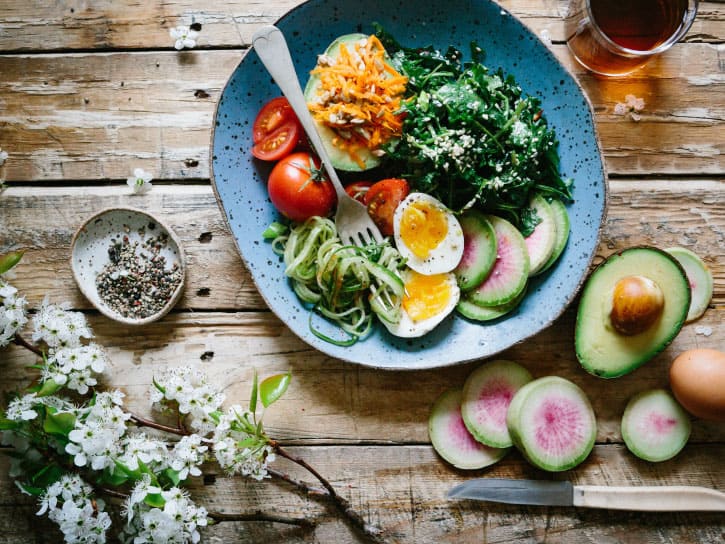
Eat well
It’s tempting to fall into a pattern of endless grazing when you are at home with little to do all day. Especially straight after Easter when we all still have a little stash of chocolate! But take the time instead to focus on eating good, nourishing food. If you enjoy cooking, it is an opportunity to flick through your cookbook collection to make something different.
Try and limit your eating to meal times, and stay away from the snacks the rest of the day. Also be aware of your alcohol consumption. If it has crept up during the lockdown, set some limits to rein it back in again. You can read further about the Australian Government’s guidelines around alcohol consumption here.
If the whole family is at home, take the opportunity to eat together as a family and talk about your day – a great chance to daily check in on the mental health of your family members as well.
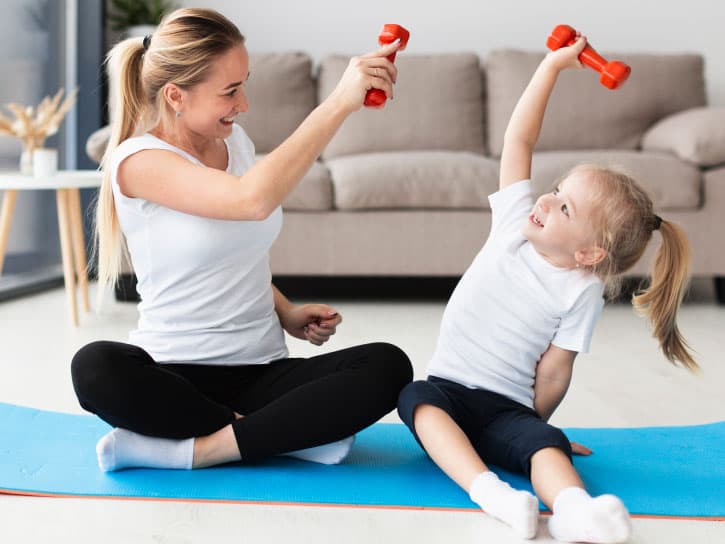
Get sleep and exercise
Sleep and exercise is vital for good mental health at the best of times, but even more so during stressful times such as this. Seek help if you are concerned about your lack of sleep but in the meantime try some of these tactics:
- Stay off the devices near bedtime. Turn off devices so you can wind down, and keep them off overnight so you aren’t disturbed by notifications.
- Use the bedroom for sleep. If you are working from home at the moment resist the temptation to check work emails from bed, or sit in bed tapping away on the laptop.
- Keep a check on your caffeine and alcohol intake. Both can affect sleep and mood if consumed in excess.
Exercise is equally important during this time to aid with stress relief and ward off illness, and we also know that physical exercise helps with mental health. Make it a priority to exercise at least daily, ideally combined with fresh air and sunshine (within current restrictions of course).
If a team sport is your usual form of exercise, then it might be a good opportunity to diversify to activities such as online exercise sessions, cycling or running – you may just stumble on a new favourite!
There are plenty of online options available so look around until you find one that you like. You can also read more about the benefits of physical exercise on mental health in this handy resource from The Black Dog Institute.
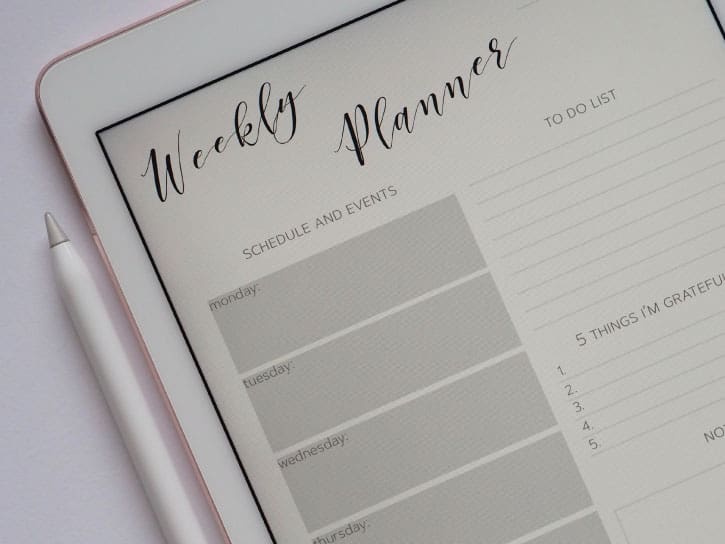
Establish a routine
In a time of significant change and upheaval, having a daily routine in place can be grounding and reassuring. Make sure you have a manageable routine set up to give some structure to your days. Schedule in some time to work on projects or activities that you enjoy doing but that you don’t usually have time to do.
It is also important for your mental health to not put too much pressure on yourself at this time. Rather than feeling the need to fill all your new-found spare time with challenges (such as returning to study, or working longer hours) allow yourself time to relax, exercise, connect with others and enjoy your surroundings. The global situation is stressful enough without adding any additional pressure.
If you are home-schooling, this may also be causing an additional strain on your mental health. Again, establish a routine that works for you and your family and accept that you are doing your best. Call in help if you can – perhaps Grandma can supervise a class via Zoom while you take a break?
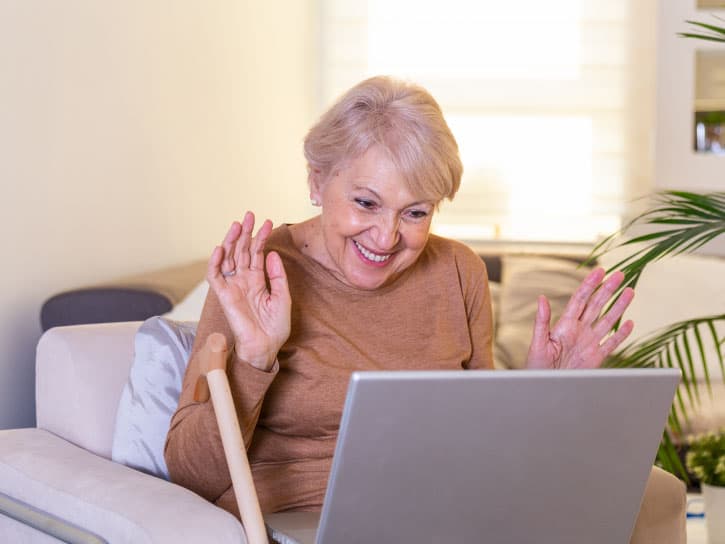
Stay connected
We’re going through some strange times in terms of human interaction, and unfortunately the lack of contact with others will result in deterioration in mental health for some. We can only do our best within the current government restraints, but luckily we live in a time when virtual connectivity is easy, accessible and affordable. Our top tips are to:
- Make virtual dates (and make them often) – call or video conference with family and friends to keep in touch, daily if you need to.
- Chat to your neighbours (from a socially acceptable distance of course) – agree to meet up for a chat through the fence every once in a while to check if they need anything and see how they are coping.
- Send letters – the art of letter-writing is making a resurgence, so make someone’s day by writing and posting them a letter.
- Hold virtual parties – for birthdays, special events, or just to catch up with a group of friends. Apps such as Skype and Zoom allow multiple users to dial-in to the same event and see each other on screen.
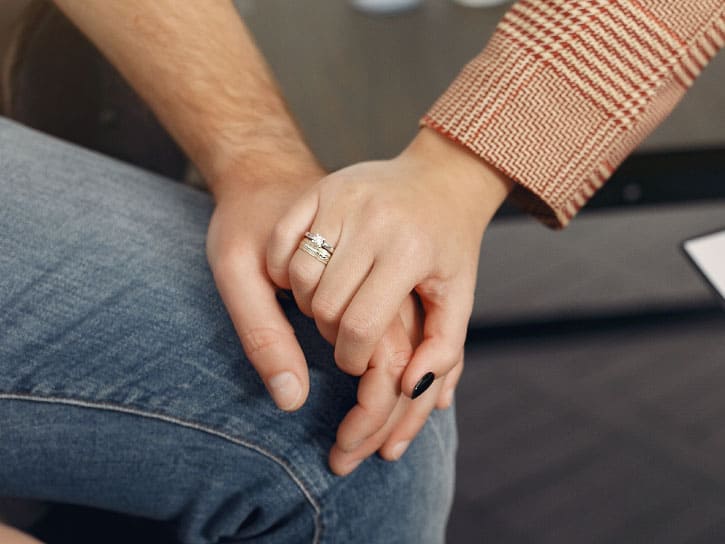
Ask for help
It is very rare for the entire planet to be experiencing the same event at the same time. As such, it is vital to remember that you are not alone, and importantly remember that there are many others across the world who understand how you are feeling.
Do not hesitate to reach out and ask for help if you feel that your mental health is deteriorating, and take extra time to check in on your nearest and dearest to ask if they are feeling OK, if there is anything they need, and how they are coping.
We have appointments available with GPs and counsellors to discuss any mental health concerns you may have, whether it be managing existing issues during this time of heightened stress, or new concerns as a result of the Covid-19 situation.
There are also a number of services with 24 hour hotlines or online resources available such as:
- Lifeline – 13 11 14
- The Black Dog Institute
- Beyond Blue – 1300 242 636
- Kids Helpline –Book Appointment 1800 551 800
- Australian Government Department of Health – 1800 020 080 (Coronavirus hotline)
This website does not provide medical advice. It is intended for informational purposes only. It is not a substitute for professional medical advice, diagnosis or treatment. Never ignore professional medical advice in seeking treatment. If you think you may have a medical emergency, immediately dial Triple 0 (000).